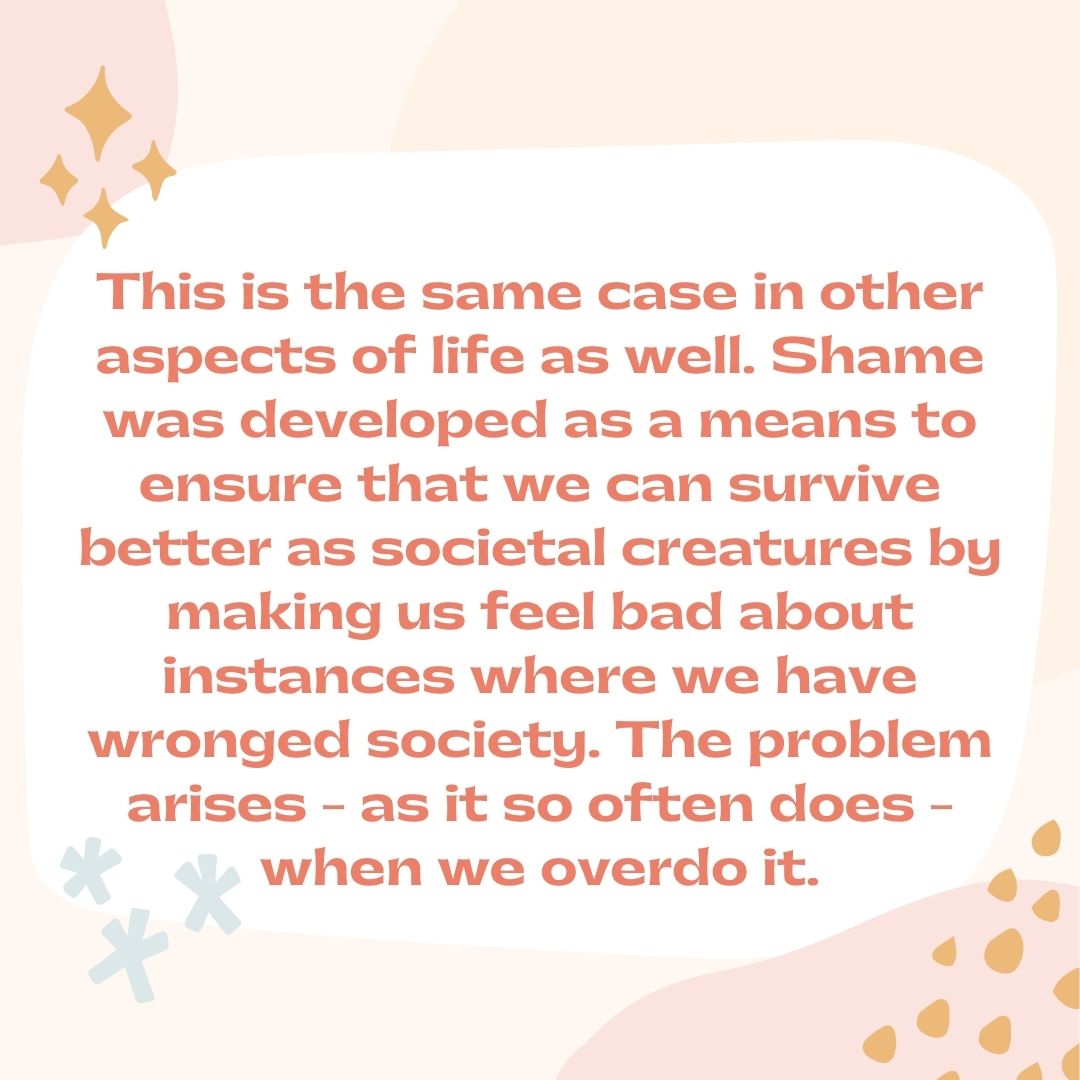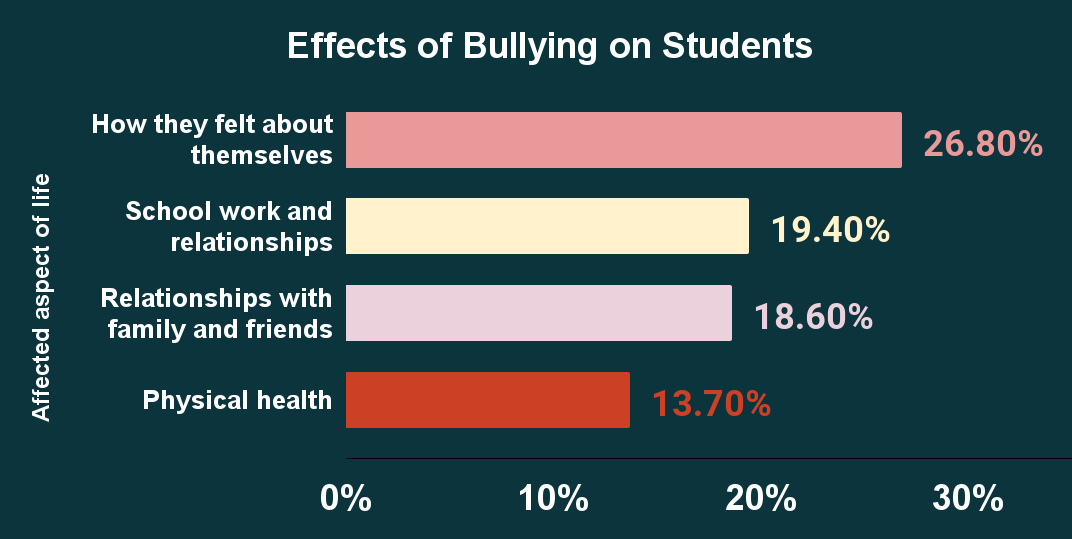Signs of Shame in a Person - 27 Causes, Types, Signs and Ways of Dealing with Shame
WhatToGetMy Instructional Article
- Shame is the humiliation that a person feels when they believe that they have done something that goes against societal norms.
- Shame can be a destructive emotion because it involves a person attacking their own self with negative thoughts as opposed to others doing so.
- When left unchecked, it can lead to very negative effects that can range anywhere between negative self-consciousness and suicide thereby making shame hugely important in the array of emotions that a human being can feel.
Shame is important in the life of a person because it helps us adapt to what society requires of us and helps us get along better with people. It also makes it easier for people to forgive transgressions. Taking an extreme example of an accident where one driver is in the wrong. People will be looking out for signs of shame in the person because it will show that they are remorseful for their actions thereby making it easier to forgive them.
This is the same case in other aspects of life as well. Shame was developed as a means to ensure that we can survive better as societal creatures by making us feel bad about instances where we have wronged society. The problem arises – as it so often does – when we overdo it.

Overdoing shame means to internalize it and therefore develop a constant sense of shame especially over things that one has little control over. This would lead to a person feeling worthless or at best, less valuable than others in society.
It is therefore important that we notice the signs of shame in both others, so that we can help them and in ourselves so that we can make the necessary moves to get over it and move on with our lives.
Before that however, we need to answer the question, “where does shame come from?” because only then can we combat it. It is therefore important that we start by talking about what causes shame.
6 Causes of shame
1. Our upbringing
The things that happen to us as children tend to stay with us for a long time even if we don’t notice them and this is especially true for negative things.
This is where internalized shame usually comes from because it sticks with us young and gets accepted as part of us as we grow up. For instance, if as a child you were constantly made to feel ashamed of something such as the way your skin looked or your intellect, there is a high probability that as you grow up those areas will be sources of insecurity and shame.
2. People rejecting/betraying us
Shame issues can also arise when other people reject you for a particular reason regardless of whether they actually rejected us or if we simply feel as though they did.
The reason those people rejected you would become a flashpoint for you that would make you wary about being around others to avoid them rejecting you for the same reason as well.
3. Mental health disorder
There are several mental health conditions that can induce feelings of shame in a person both because that is how they work and because the person suffering from them might be ashamed that they have that disorder.
Disorders such as Social Anxiety Disorder, Post-Traumatic Stress Disorder (PTSD), Obsessive Compulsive Disorder (OCD), Eating disorders and Bipolarism amongst others, have been shown by research to cause shame in those suffering them.
4. Setting too high a standard
When we set our standards at a level that we cannot reach at our current stage of life, we might feel deep shame when we don’t reach those levels and believe that other people know that we have not reached those levels.
For instance, a college student who feels that they should be living a higher standard of life than they currently are, spending money they don’t have to make it look like they are rich and then losing everything when the debt collectors come. There is only a little possibility that this student would not feel intense shame afterwards.
5. Bullying
This is essentially shame psychology because it involves telling someone that they should be ashamed of something by insulting or degrading them.
Bullying causes the bullied to feel shame such that they feel more insecure about the things that they were bullied about. They would therefore develop a more negative feeling of themselves. This was confirmed by research into students being bullied by USC Rossier School of Education.

6. Fear of the world finding out about insecurities
Most people have some sort of insecurity that they can’t help being ashamed of and so they try to hide it when with other people.
When we feel like people are about to find out about these insecurities, it is normal for feelings of shame to envelope us because of the impending embarrassment that we believe we will face when the insecurity is revealed.
Here are signs that a man or a woman are insecure.
7 Types and Examples of shame
It is also important to talk about the examples as well as the types of shame there are so that we know which one we feel at a certain time and its severity.
1. Healthy shame
This is a necessary shame. It is the shame that binds and allows you to stay within the norms of society so that you do not offend people.
Healthy shame allows for people to be humble and so relate well with others which is why those people who usually say, “I have no shame,” are considered outcasts by at least some portion of society.
2. Temporary shame
As the term implies, this shame does not last quickly and so will not have any long lasting effects on your life.
This shame usually results from us making a minor mistake such as tripping whilst walking. Some of us laugh at it and some get a little bit irritated but for the most part, we forget that we even tripped by the next day.
3. Shame as a result of social anxiety
Social anxiety can create shame in us when we are in an unfamiliar setting or with people that we don’t know very well.
This shame can also manifest itself when we are excluded from a social group such as a team at school or work and a feeling of inadequacy develops as we may believe that we were not chosen because we were not good enough for the team.
4. Failure based shame
Another popular example of shame, this one comes about when we fail to accomplish a certain task and so begin to question our ability to do certain things.
It tends to get even worse the more people know about the task because it means that more people know that we failed.
It is worthy of note however, that even if people don’t find out about the failure, signs of guilt and shame could still materialize in certain situations such as if the failure affected a lot of people.
5. Humiliation
This type of shame results from us getting embarrassed about something in front of other people.
Because we feel like the other people might judge us, we feel intense shame at them having found out about whatever it is that embarrassed us.
6. Inadequacy shame
When we feel as though we are not good enough to do something or be with someone, this is shame borne from a feeling of inadequacy.
There are many things that can inspire this such as social class disparity, racial disparity, physical disparity and many more but a major contributor is our upbringing. If growing up we were always made to feel that we were lacking in some way, that internalized shame can lead us to believe that we are inadequate in our adult years.
7. Toxic shame
Toxic shame syndrome is the worst type of shame there is. It is shame that makes you feel as though something is inherently wrong with you.
It messes with the way a person behaves because in accepting that there is something wrong with you, you behave as though you have accepted that there is nothing you can do to change this negative aspect of your life but to accept it and put yourself down because of it.
This is what makes toxic shame so dangerous – the feeling is constant and almost never goes away unless treated.
11 Signs and Symptoms of shame
When we feel shame we tend to adopt certain shame behavior patterns either as a way to hide the shame or to avoid having to feel the shame in the first place. Some characteristics of shame based behavior include:
1. Anger
Anger is one of the well known signs of shame in a person because it acts as a countermeasure against the shame in order to get over it faster.
This shame based anger leads to us blaming either others or ourselves for the shame that we feel and masks the shame until we are thinking more clearly. For instance, a father yelling at the whole house when he trips over an item in the living room being ashamed that he tripped but masking it by being angry at others.
2. Loss of self esteem
Shame can make people feel less sure of themselves and/or their ability to accomplish certain tasks. This is especially true for more permanent types of shame such as toxic and inadequacy shame.
This would lead to a loss of self-esteem as you begin to feel like you are not a very valuable member of society.
For a more indepth look at self esteem look at what it means to have low self esteem.
3. Substance abuse
In order to rid themselves of the negative feelings that come with shame, some people tend to resort to dealing with shame by abusing substances such as alcohol and drugs so as to feel better.
In the case of toxic or internalized shame, this could lead to addiction as the person keeps taking more and more of the substance in order to feel better. This can have adverse effects as most of these substances can do heavy damage to the body including alcohol.
4. Fear of being around people
Some people might react to the shame they feel from their insecurities by avoiding people so that their insecurities do not get exposed and they do not get embarrassed.
It can lead to them becoming loners and introverts which can be mentally damaging if they are not naturally that way and would prefer to be in the company of people.
5. Tendency to avoid eye contact
Another one of the signs of shame in a person is that they might display certain physical behaviors that show that they are not a threat to anyone and so should be left alone. Essentially they are trying to blend in so as not to get noticed by people as this could expose whatever they feel ashamed of.
Such behavior include: avoiding eye contact, walking with a bowed head and slumping their shoulders regularly.
6. Trying to please others to avoid criticism
Another sign of shame in a person is that they will go out of their way to avoid being made to feel ashamed and if this means that they have to please people to their own detriment, they will do so.
Such people tend to have social phobias and toxic shame so they try to avoid embarrassment so that their conditions do not get worse.
7. Avoiding relationships and friendships
This is one of the signs of toxic shame as it stems from feeling inadequate and as though there is something innately wrong with you.
In order to avoid other people finding out about whatever this thing may be, you shut yourself off by avoiding your already existing social circle and refusing to enter into any new friendships or relationships so that your secret stays safe.
8. Feelings of inadequacy
Feelings of shame usually stem from feelings of being inadequate in something and worrying that people will find out.
If you find yourself constantly feeling inadequate at work, home or at school, then there is a good chance that there is shame lurking about.
9. Hiding your opinion
Toxic and internalized shame lead to a person having low self-esteem which means that they will devalue their own opinion.
In trying to ensure that they do not suffer embarrassment on account of people finding out about their “useless opinion,” they keep it to themselves and end up not contributing as best they could to whatever the issue was.
10. Constantly being afraid of failure
A person who feels toxic shame is constantly afraid of failing whatever it is that they do because they will feel that they are not good enough to cut it.
Whether it be at school, work, home or a business venture, risks need to be taken to be better but a person who feels shame will be afraid of the embarrassment that will result if they fail and so avoids taking risks.
11. Timidity and shyness
These are other physical signs of embarrassment and shame that manifest when you feel ashamed of something.
They are more preventive in nature however because they involve not acting in a way that will get people to notice you and whatever you feel ashamed of.
3 Ways of dealing with shame
1. Find out what you feel ashamed about
The first step in how to stop feeling shame is to look inwardly to find out the answer to the question, “why do I feel shame?”.
You can do this by yourself when you take stock of your feelings to find out instances that made you feel really ashamed and then thinking about what could have spurred those feelings those times.
You can also document instances where you felt ashamed by writing a personal journal and then analysing what you wrote down.
Therapy is another way to get to the root of what makes you feel ashamed and it is especially useful for shame that developed as a result of your upbringing and mental health disorders.
2. Change what you can and accept what you cannot
Once you have figured out what it is that makes you feel shame, you can work on it to feel better about yourself.
It is important that you do not change the fundamental aspects of your being and that you focus on only those things that you can change such as your weight and accept those that you cannot such as the color of your skin.
3. Talk to a therapist
This is especially useful as a toxic shame treatment because therapists are more educated on how to overcome toxic shame and getting rid of shame in general.
Using a range of methods such as Cognitive-behavioral therapy, these professionals can both help you identify the source of your shame and then help you come up with personalized strategies on how to handle the shame.
Frequently Asked Questions
1. What are the stages of shame?
When it comes to shame there are generally five stages which include:
- Denial – here we deny that we are actually feeling ashamed about whatever it is that happened
- Anger – the denial is usually followed by anger at the fact that we have been embarrassed
- Embarrassment and Self-Judgement – we then begin to judge ourselves and the decisions that we made that led us to that moment
- Depression – the self-judgement makes us feel as though we are always making poor decisions and so we begin to feel really bad
- Acceptance – we accept that what happened has happened and we should move on.
These stages will not necessarily follow in that order and the time frame per embarrassing event may vary as you could go through all these stages in between a minute to as much as years.
2. How do you deal with feelings of shame?
- First you need to identify what it is that is making you feel ashamed so that you can know how to go about fighting it.
- Then deal with the issues that you found out that are making you feel ashamed. FOcus on those issues that you can solve and accept those that you cannot.
- Engage the help of a professional if the shame progresses to a toxic level that makes you feel as though there is something innately wrong with who you are.
3. Is shame an emotion or a feeling?
Shame is both an emotion and a feeling because we can feel shame immediately when an embarrassing situation happens which is the definition of an emotion and, we can also feel shame after we have had time to analyse the embarrassing situation which is what a feeling is.
All in all
Shame is a natural emotion and one that is necessary in human society so do not knock yourself for feeling it.
Like virtually all other emotions however, it is important that you do not overdo it. You need to know when not to feel shame so that it does not interfere with you living a normal life. If you notice yourself having any of the signs shown here, it is okay to reach out to those who can help you and you should because no one deserves to be held captive by shame.
01 HOUR 24 MINUTES
ESTIMATED TIME DESIGNING AND UPLOADING THIS ARTICLE
11 HOURS 40 MINUTES
ESTIMATED TIME RESEARCHING AND WRITING THIS ARTICLE
You Might Also Like

How to Surprise your Boyfriend for No Reason
Guide On How to Surprise your Boyfriend for No Reason WhatToGetMy Instructional Article Ask every girl out there what she wants, and 90% of the time, she’ll say “ways of how to surprise your boyfriend for no reason.” Women are forever combing through magazines, asking

Sailing Vacations For Couples | Definitive Guide And Destination Idea
Sailing Vacations For Couples WhatToGetMy Instructional Article Suppose you are planning a vacation for you and your partner but are looking for something different this time, something exciting and romantic. In that case, you want to look at sailing vacations for couples. Many people find

9 Things to Do When Your Boyfriend is Sick
9 Things to Do When Your Boyfriend is Sick WhatToGetMy Instructional Article It hurts to see any of our loved ones in pain, especially if we know we cannot be of much help. A sickness, of course, varies in severity from person to person. We

17 Lovely Sympathy Gifts for Loss of a Grandmother
People deal with loss differently and finding the right words to console someone mourning the loss of their grandmother is not easy. The depth of their grief may not fully be understood but getting them a gift will show them how much you care for

17 Thoughtful Things to Get Pregnant Friends
The journey to childbirth can be a lot easier for moms when family and friends support them. It doesn’t matter whether they are first-time moms or not, pregnancy should not be a lonely journey. In this article, you’ll find 17 thoughtful things to get pregnant

15 Things to Do Late at Night With Friends
15 THINGS TO DO LATE AT NIGHT WITH FRIENDS WhatToGetMy Instructional Article This article brings you 15 things to do late at night with friends. The list has been compiled to include late night activities ideas with friends that are fun and safe to do

Best Undiscovered Honeymoon Destinations In The World
Best Undiscovered Honeymoon Destinations In The World WhatToGetMy Instructional Article Your wedding is a special event in your life and your honeymoon should be even more special and personal. You can make sure you spend an unforgettable honeymoon by finding some of the best-undiscovered honeymoon

CUTE SENTIMENTAL GIFT IDEAS FOR YOUR BOYFRIEND
CUTE SENTIMENTALGIFT IDEAS FOR YOUR BOYFRIEND WhatToGetMy Instructional Article You have decided not to get your boyfriend the newest gadgets and gizmos as gifts this time around because you feel the whole gift-giving routine of such items have become stale and are usually the type

29 Perfect Gifts For Someone Who Hates Everything
A person who hates everything could have one or several reasons for hating everything. It could be because they are just angry people, or that they don’t like gifts, or they don’t know what they want or they have everything. The key to choosing the

15 Ways Husbands Destroy Their Marriage
15 Ways Husbands Destroy Their Marriage WhatToGetMy Instructional Article Marriage is a partnership and sometimes partnerships can be destroyed because of the actions of either partner. Sometimes that partner is the husband who might behave in certain ways that puts the marriage in jeopardy if


